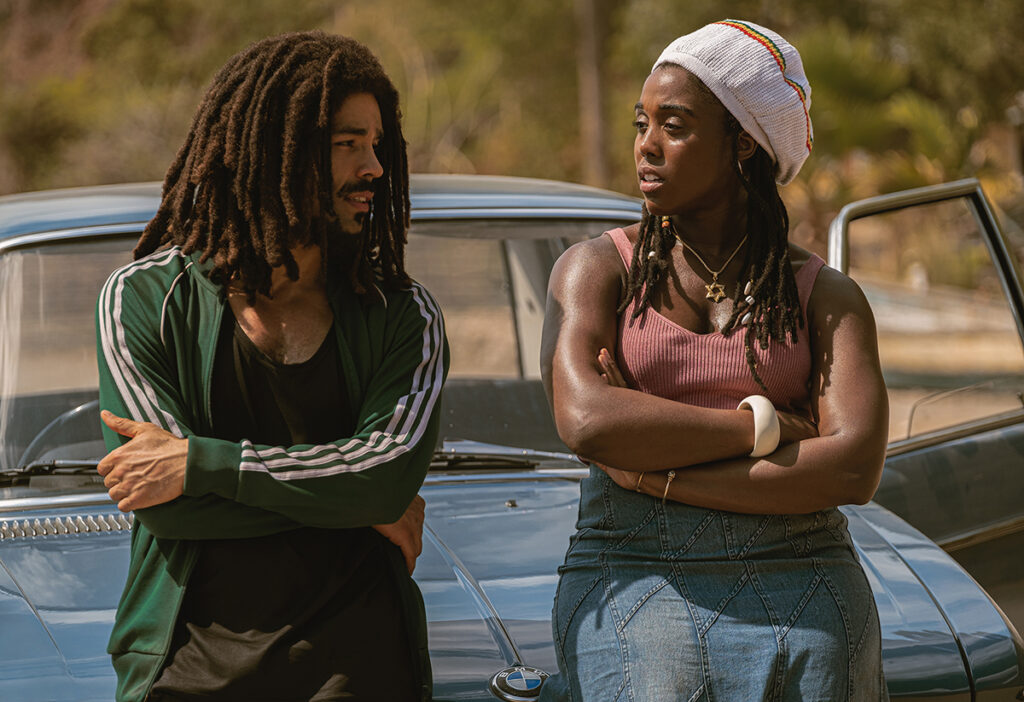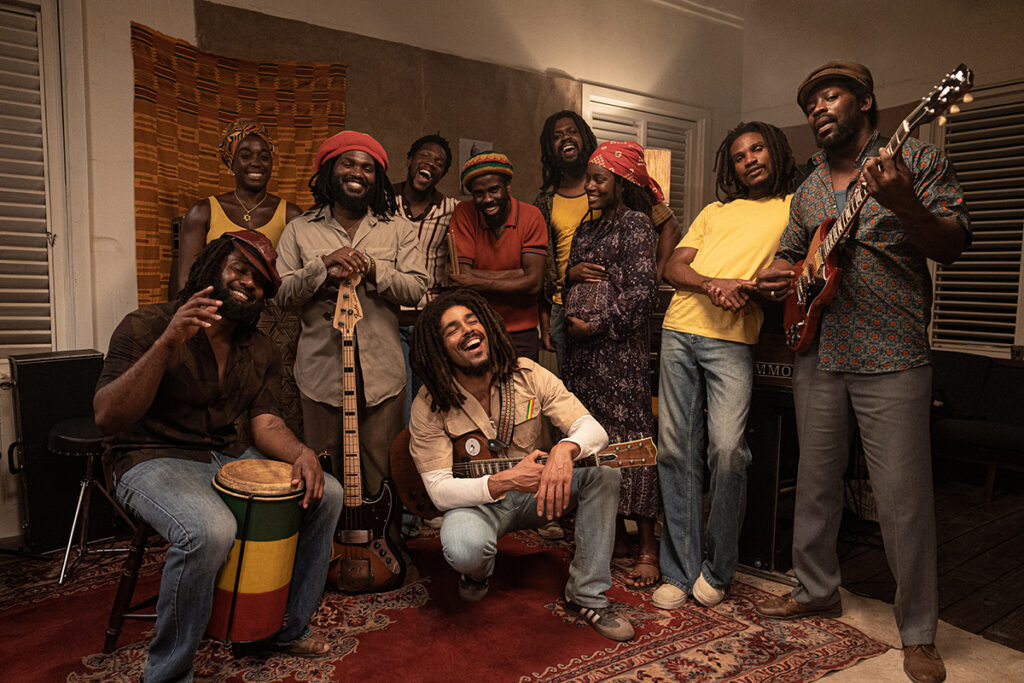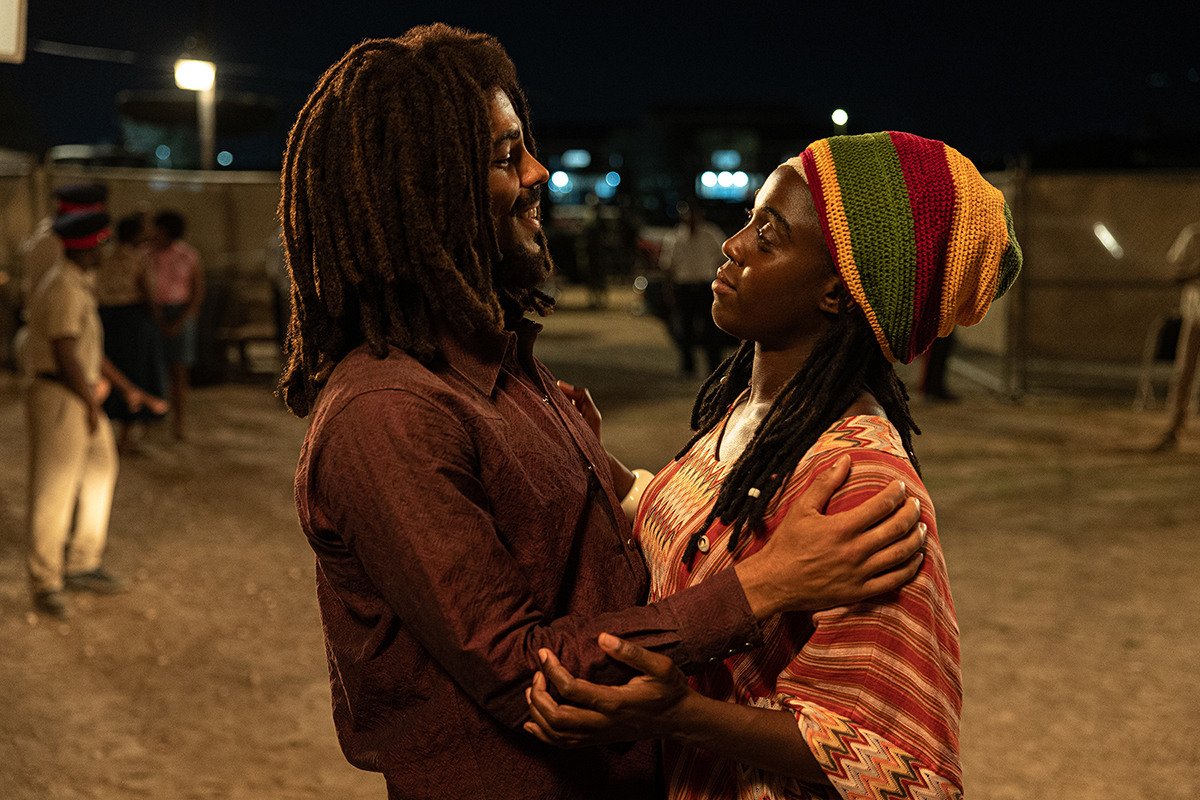Bob Marley: One Love presents the man through moments of trauma, fear, jealousy, and love, weaving a story that humanizes his legend, even if it sometimes feels inauthentic or flat. The film focuses on a moment that shifted Bob Marley’s life, which in turn, led to the creation of an iconic album. As such, Bob Marley: One Love introduces newcomers to an iconic artist while reminding others of the revolutionary power of music. Yes, some of the dream-like sequences feel thrown in without purpose. But, overall, the film is moving for those who want to get to know the man behind the legend.
Directed by Reinaldo Marcus Green and written by Terence Winter, Frank E. Flowers, and Zach Baylin, the story cuts from a flashback of a young Bob Marley to a press conference surrounding a free concert he plans to perform in Jamaica. Political tensions are high so, the event takes on political overtones without his saying a word. Soon, Bob takes off to different countries, with his bandmates and a trio of backup singers, one of whom is his wife Rita.
Bob Marley: One Love Is Relationship Drama

It’s unclear how much of the film is biographical and how much is exaggerated for the viewers. However, with the real Rita Marley’s aid in bringing this film to fruition, there may be more fact than fiction. Indeed, there was strife between the two spouses, even as they clearly cared for one another. Their relationship is an odd dynamic where he needs her to make music, yet also repeatedly has affairs – to the point where he gives the kids from those trysts to Rita to raise. While Bob may want a revolution, his behavior reeks of the same patriarchal behaviors found in any oppressive system.
Top-Tier Peformances in a Good Film

Kingsley Ben-Adir delivers a charismatic performance as Bob Marley. Even down to his mannerisms or onstage dancing, he becomes Marley. And he’s complimented nicely by Lashana Lynch, who plays Rita. She was outstanding in The Woman King and knows how to find the pulse point in a role to bring it to life. Here, Lynch is a powerhouse, playing a woman who believes in her husband’s vision even as she’s tired of his constant affairs. Not to mention, Bob has the nerve to get jealous when she talks with another man. The film is not exceptional, but thanks to his and her performances, it’s worth seeing. Plus the attention to detail makes the film feel authentic despite drier moments.
But Lacking Depth

One of the parts that did not work in Bob Marley: One Love is Bob Marley’s repeated visions of himself as a child running into an empty field. The scenes oversimplify complex emotions failing to add depth because they lack the context to achieve it. It’s the Black Panther scene with T’Chaka but without the emotional impact. Although the scene repeats throughout the movie, it never hits the level needed to tug at viewers’ emotions. Instead, it felt like something tossed in because—reasons. Truthfully, having white writers craft this story makes it feel constrained sometimes. It’s not bad, but through a, dare I say it, Black lens, Bob Marley: One Love could have been better.
Bob Marley: One Love isn’t a spectacular movie, but the leads do a lot to make the film more than it is, creating an enjoyable picture. Besides the performances, the music is, of course, unforgettable. Other than that, the most memorable takeaway is the number of baby mamas Bob Marley had. Bob Marley: One Love doesn’t hide from less-than-inspiring aspects of its subject but it could have done more than remind audiences of an already acclaimed album.

